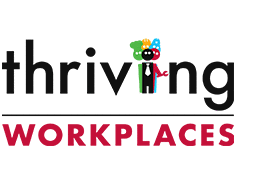
10 Dec Three Steps to Transforming Your Culture (no really)!
Providing training such as mental health first aid and resilience should be a mandatory requirement for all companies because it can have a profound effect on transforming organisational culture and wellbeing outcomes for staff.
Tragically, suicide is on the rise again after years of a steady decline, and other mental health conditions such as anxiety and depression are also rising, particularly in young women, with nearly 25% of women aged between 16 and 24 experiencing a mental health disorder symptom in any given week.
There are complex reasons why this is so, but a toxic organisational culture can be a big part of the problem.
We’ve conducted over 100 organisational surveys in the past two years and one key indicator of workplace culture we include in the digital survey asks how willing people are to talk to their line managers about stress, anxiety or depression.
In all sectors an average of 55% would not speak to their line manager and in some sectors, such as engineering and manufacturing, it increases to 65%.
Think about that. Chances are, over half of your workforce are not prepared to speak to their line manager about stress anxiety or depression and yet many will be experiencing mental health issues, some very serious!!
Achieving transformational culture change normally requires change at a profound level, including thinking, values and behaviour. However, in the case of changing a culture to reduce mental harm and promote wellbeing, a relatively small number of internal changes can have a profound effect.
So here are the three things I would strongly recommend;
1. Carry out a wellbeing analysis. How bad is your culture? How do you compare within your sector? Where in your operations are mental health problems most common? Which staff are most vulnerable? If you carry out a comprehensive survey and analysis you can really target your efforts. I would also recommend including some wellbeing measures within your organisational performance dashboard, so you can concentrate on them over time.
2. Develop a Mental Health and Wellbeing Policy. How hard do you try to reduce the stigma around mental health? Do staff and managers know what to do if they, or a colleague, is struggling? How capable are managers at broaching and conducting conversations about wellbeing, or spotting the signs and symptoms and taking supportive action?
3. Train, train, train! Make sure training provision matches the needs and risks in your organisation. I would really recommend two-day mental health first aid courses. Not only do delegates gain knowledge and confidence in spotting and dealing with mental health problems, they also gain profound insights into their own attitudes and thinking. Sending senior managers along is especially effective because they carry the influence and authority to scale training provision up. I would also recommend half day mental health first aid training and resilience training for all staff. The latter will particularly help employees develop personal strategies to thrive at work.
Although these measures are not a panacea (heaven knows some sectors need to make much deeper changes, such as health, ironically), we have seen that some companies that started off small scale with training, have experienced profound culture change almost by osmosis.
Some ‘dyed in the wool’ managers worry that shining a light on mental health will somehow lead to making people less resilient, or even increase sickness.
This is far from our experience with the 90 companies who have received training from us so far. The more people they train, the more they want to train because they learn that adopting this approach adds to the vibrancy, energy, productivity and appeal of their organisations. It is also a cost effective, achievable corporate initiative that you can deliver in a very short space of time and have a big impact!
To find out more contact me at us at [email protected]


